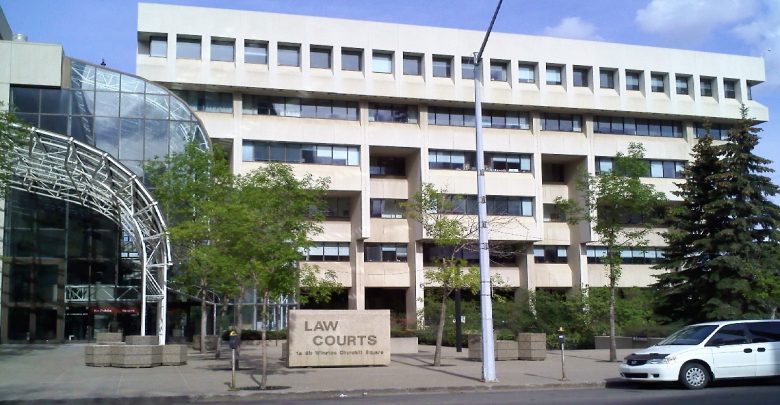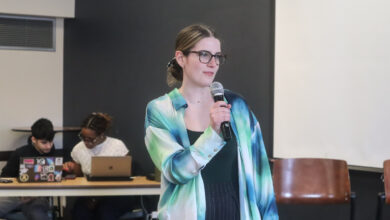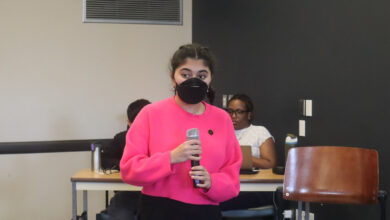Ending Legal Aid Alberta perpetuates an unequal justice system
Inequalities already exist in our justice system. Taking away lawyers for those who can't afford them will only make things worse.
 Supplied
SuppliedPicture this — you get in legal trouble. You’re not sure who to turn to. You decide you need to seek out the advice of a lawyer, and as you can’t afford legal fees on your own, you get in touch with Legal Aid Alberta (LAA). Normally, it’d be able to provide you with legal representation and advice. Except that might not happen because you live in Alberta where the United Conservative Party (UCP) and LAA are in a dispute over funding.
Amid negotiations for a new governance agreement, LAA said the province served them with an “ultimatum,” which put its independence and funding at risk. Negotiations had come to a halt and LAA’s services were set to end as of July 9. While the UCP extended the agreement until September and both parties are back to negotiating, the future of LAA’s services are unknown. The loss of LAA and its invaluable services is a very real possibility in our province right now.
If the UCP doesn’t renew the agreement, LAA will no longer be able to provide lawyers to those who can’t afford them. The UCP have had growing concerns with the increased budget LAA has seen over the last nine years, without an increase in services. On the other hand, LAA is concerned about the lack of control LAA would have under the proposed agreement. However, this dispute has been unnecessary and stressful for Albertans — and the UCP are to blame. The UCP has a responsibility to ensure all Albertans, regardless of financial status, have a fair chance in our justice system. Chopping LAA’s contract doesn’t do anything besides make justice only available to the rich.
This isn’t the first time justice in Canada has come down to an individual’s financial situation. Bail in Canada is a strong example of a contentious policy that creates barriers within Canada’s justice system. It’s a policy that furthers the divide between those who actually get justice, and those who cannot afford it. Whether or not you are left to wait out your court date in jail could depend entirely on your financial situation. And if people are already struggling to make bail, they wouldn’t have the money to afford private legal representation.
This is even further complicated when factors such as race come into play. Canadian bail policies tend to target Black, Indigenous, and People of Colour (BIPOC) unfairly. Indigenous people tend to have their bail denied more than their white counterparts. Black people tend to have to wait longer in custody.
Racial disparities exist at multiple stages in the justice system. BIPOC are already over-represented in Canadian prisons. Statistics Canada reported that Indigenous people are incarcerated at a higher rate than their white counterparts. A correctional investigator also reported that BIPOC inmates face discrimination and marginalization in Canadian jails. Additionally, BIPOC people are more likely to face poverty, thus be even less likely to afford a lawyer. Normally, LAA would be there to help, but if the UCP doesn’t negotiate a fair contract, it won’t be.
By defunding LAA, the government would contribute to disadvantages for the lower classes and BIPOC. While the upper class can pay for legal support, this would leave the lower class to fend for themselves, literally.
Without a lawyer, it is significantly more difficult to advocate for a fair trial or fair treatment while in jail. Racial prejudice makes these issues even worse. Black people in Canada have reported feeling less confident in the justice system. This is due to the amount of prejudice they tend to face from police. There’s also concerns about racial bias in court proceedings that determine things like sentencing. Advocating for yourself can be incredibly difficult, and not having access to a lawyer makes existing difficulties worse. For a country that puts so much emphasis on equality, it is important that we protect each and every person’s access to a fair trial. This includes the Albertan government giving LAA a fair contract.
In addition to providing services for criminal proceedings, the LAA also does family law and immigration law. This could be a key service for someone who might be new to the country or fleeing domestic violence. Those circumstances can place an individual at a financial disadvantage. They could also be facing other disadvantages such as language barriers or lack of understanding of the justice system. This would especially be the case with Canadian newcomers. If we want to help these vulnerable communities have a better, safer life, services such as LAA are necessary. Just because someone has less financial resources or doesn’t understand the justice system doesn’t mean they don’t deserve the right to a fair trial.
So in the end, it’s not just about just making things free. It’s about proper justice, equality, and breaking down systemic issues in Canada’s legal system. All defunding LAA will accomplish is making navigating the legal system unnecessarily difficult for already marginalized folks. After all, what’s the point of a legal system if some people get to just pay their way out of it?




